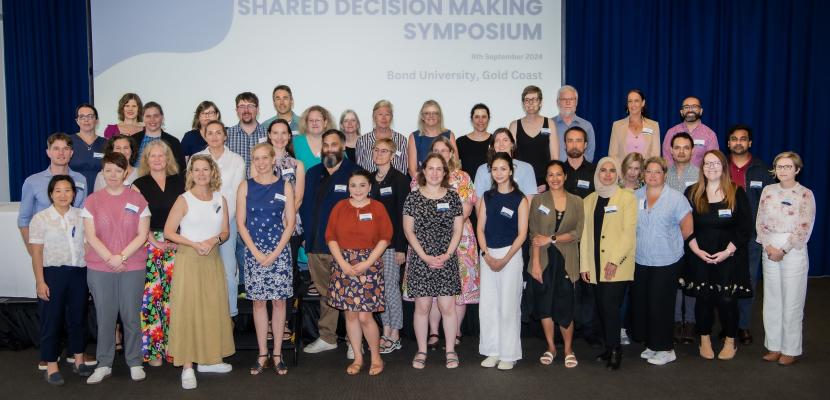
Patients are not getting a fair say in potentially life-altering medical treatments due to Australia’s “paternalistic” healthcare system and a fragmented approach across the sector.
The Institute of Evidence-Based Healthcare at Bond University hosted Australia’s second National Shared Decision-Making Symposium this week, 11 years after it held the first.
Professor Tammy Hoffmann OAM said while progress had been made since the inaugural symposium, giving patients a greater voice in their treatments remained far from being widespread or routine.
“There are a few pockets of excellence, but most initiatives have been driven by local champions in specific health services or organisations,” she said. “There has not been enough change.”
The symposium was attended by researchers, clinicians, and policymakers from Australia and countries which are leading the field.
“Patient-centred care is at the heart of creating a safe healthcare system,” Prof Hoffmann said.
“A key part of this is shared decision-making, which involves both the patient and the treating clinician and can reduce harm from unnecessary tests or treatments and increase the uptake of effective treatments.
“Unfortunately, Australia has a paternalistic healthcare system and a culture in which it is not routine for patients to be presented with the options and be involved in making informed decisions with their clinician about what treatment is best for them.
“The ‘doctor knows best’ culture is very ingrained.”
Australia’s fragmented healthcare system is another barrier to embracing shared decision-making which has been pioneered by countries such as Germany, the Netherlands, Taiwan and Denmark.
“There is no national shared decision-making strategy like many other countries now have.” Prof Hoffmann said.
“Once again, Australia is lagging behind. There is not even one program within the Department of Health and Aged Care that has been given responsibility for it.
“The strategy documents from many programs say it ‘should be done’, but there’s no ownership and no strategies to help hospitals or primary care actually make it happen in practice.”
Prof Hoffmann said patients could take a more active role in their medical decision-making by asking simple questions such as:
- What will happen if I wait and watch?
- What are my test or treatment options?
- What are the benefits and harms of each of those options?
- How do those benefits and harms weigh up for me? What matters most to me?
- Do I have enough information and support to make a choice?
“This is not about missing out on healthcare, but taking an active role in deciding what course of action is right for you and understanding the benefits and harms of different options.”
Shared decision-making is a cornerstone of research at Bond University’s Institute for Evidence-Based Healthcare.